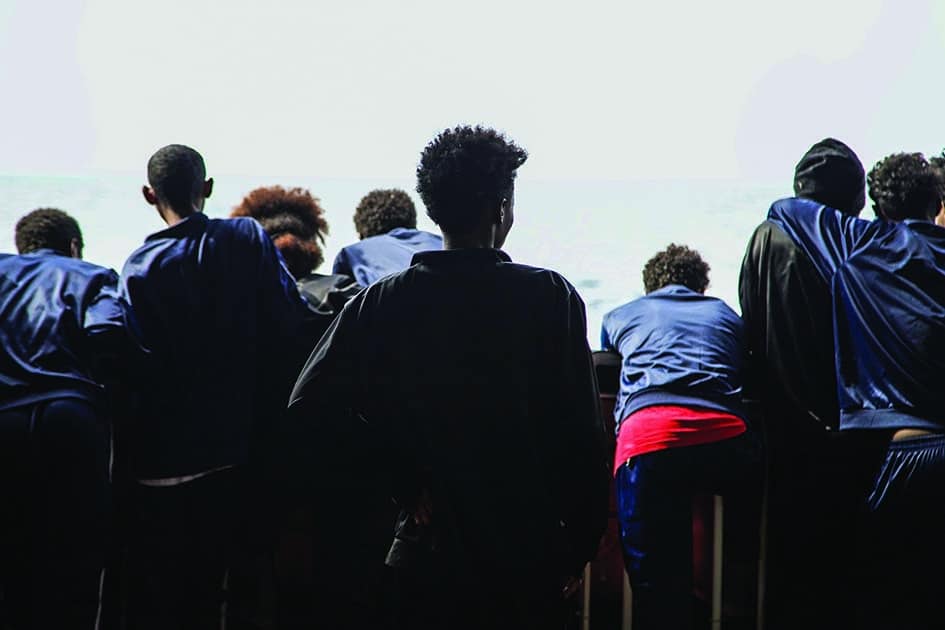TIGRAY: The teenage refugee from the war-torn region of Tigray in Ethiopia had just had a narrow escape from drowning in the Mediterranean Sea-like countless others before him. Even so, as he stood on the crammed deck of a rescue boat, 16-year-old Aber Hageria was already thinking of how to help his family once he gets to Europe.
For Hageria made the journey alone. "I want to help my family. To work in Europe to send them money," he told AFP on board the Medecins Sans Frontieres (MSF) ambulance boat, Geo Barents. "I have a double responsibility: to give them back what they gave me, and to get them out of a region where there is still conflict," he added.
The 17-month war between government forces and the Tigray People's Liberation Front (TPLF) has created a humanitarian crisis in northern Ethiopia and sparked fears of famine in Tigray, which has been under a de facto blockade for many months, according to the UN. Hageria was pulled out of an overloaded dinghy with another 101 people off the Libyan coast on April 23. Struggling to stand amidst the other migrants lying on deck, he watched an improvised hairdressing session with some consternation.
"That's not the way to do it. He's not cutting anything here," he pointed out, with the experience of someone who has handled clippers many times on his journey into exile. Hageria is just one of the 748 unaccompanied minors rescued by the MSF boat since its mission began in May 2021.
Children who make the journey alone are among the most vulnerable of the thousands of exiles trying to reach Europe, said Julie Melichar, MSF humanitarian affairs officer on board the Geo Barents. "Lacking the protection of an adult, they must be able to access their rights and the child protection that is part of that... in a safe place in Europe"," she said.
All countries are obliged to apply the International Convention on the Rights of the Child, adopted in 1989, she added. Several of Hageria's seven brothers, are fighting in the TPLF. Tattoos on his skeletal forearms pay tribute to them, to his parents and his sister. "I love," reads one. Hageria said he barely had time to escape when the fighting broke out.
'Completely isolated'
"The war came on suddenly. I fled for my life. But once I left, I couldn't come back," he told AFP. "Tigray is completely isolated by the central government. There is no electricity, no water, no access to food." With two friends and a phone, he crossed the border from Ethiopia into neighbouring Sudan and, after a 16-month odyssey, eventually reached Libya. He did not talk much about his experiences on the road. But when the discussion turned to Libya, he gestured to signal bound wrists and beatings.
"Libya is a really dangerous country," he said. He paid $9,000 (8,500 euros) to smugglers to cross the Mediterranean, he said-a sum his relatives collected for him. "I haven't talked to my family in a long time," he said. The central Mediterranean is the deadliest sea route in the world. More than 1,553 people disappeared in 2021 en route to Europe, according to the International Organization for Migration (IOM). As the Geo Barents was headed towards the port of Augusta in Sicily, Hageria kept himself busy helping with English translation and applying bandages to injured fellow migrants. - AFP





